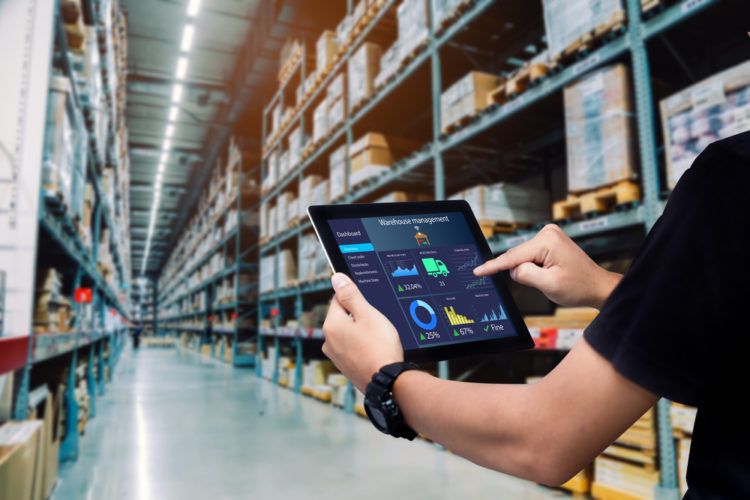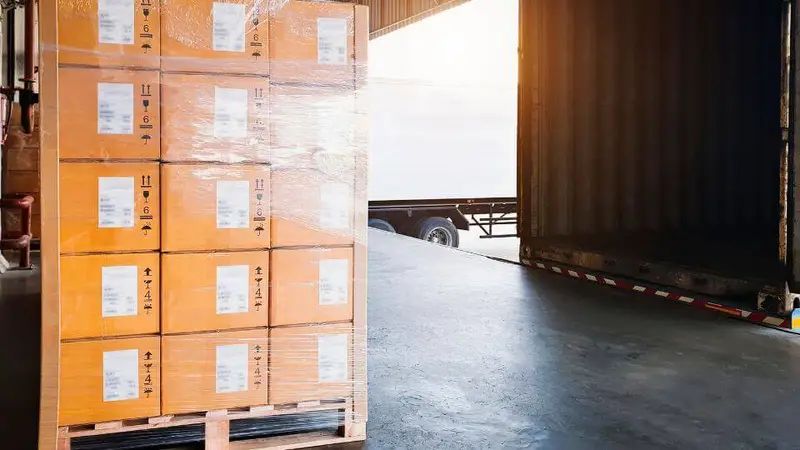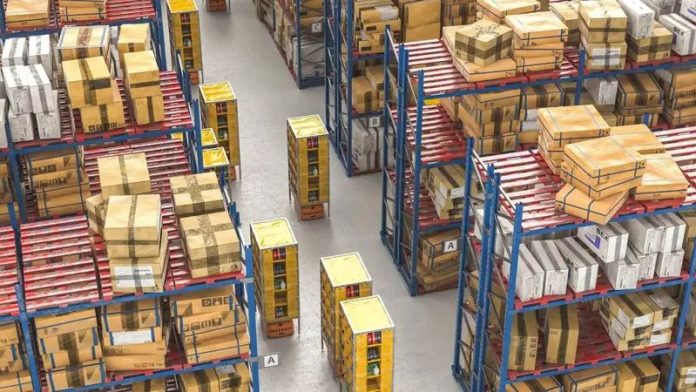JAKARTA – The Ministry of Trade is asked not to directly accuse logistics companies in resolving cases of rampant circulation of illegally imported goods in Indonesia.
This follows the admission of the import task force formed by the ministry regarding efforts to explore the role of logistics companies in the case of illegal imports of goods owned by foreign nationals which were found on Friday (26/7) in in the Kapuk Kamal Raya area, Penjaringan, North Jakarta.
“We shouldn’t accuse logistics companies. Please prove it through the result of the task force’s work. Don’t just accuse. Make the presumption of innocence as the basis,” said House of Representatives Commission VI member Herman Khaeron on Thursday (15/8).
According to him, accusing logistics companies will only damage the national economic system.
“It will have an impact on the national economy,” he said.
The task force’s caution of not checking importers and borders managed by Customs from the start also raised questions for Herman.
Because, according to him, the only door of the entry of illegal imported goods must be located at the border.
“All (problems) should be at the border. There should be checks on importers,” he said.
“To the Ministry of Trade, there is no need for accusations. Please prove the indications and give sanctions if proven,” he added.
Do Not Blame the Logistics Company
Similar concern was raised by Ditha Wiradiputra, Executive Director of the Institute for Competition and Business Policy Studies (LKPU) from the Faculty of Law, University of Indonesia.
He said the same thing when asked for his response to Trade Minister Zulkifli Hasan’s statement asking logistics companies not to serve tenants who want to use their warehouses to store illegal goods.
He asked the government not to scapegoat logistics companies when they failed to eradicate the circulation of illegally imported goods in the country.
“The basis of proof must be clear. This can be said to be looking for a scapegoat for the government’s failure,” he said when contacted on Friday (2/8).
If it really wants to solve the problem of illegal imported goods entering the Indonesian market, he continued, the government should take clear and firm action.
For example, if a logistics company is considered suspicious, the authorities should target the entry points for illegal goods–which are generally located at ports or airports.
“Why not point to the port? The logistics are from there. Why not the airline industry? There where all the cargoes come from,” he added.

He also considered Minister Zulkifli’s statement a blunder without understanding the issues regarding the system in export and import.
The reason is, any logistics company in Indonesia will only carry out its function if the goods pass through the door of any port and airport.
If Minister Zulkifli wants to stop illegal goods from entering Jakarta, Ditha urges him to check the customs that allowed the goods to pass.
“They (logistics companies) are just delivering. The problem is why can they (illegal imported goods) pass? If they can be unloaded at the airport, there’s no way they can get through,” he said.
According to him, the existence of the import task force is also just a ‘cosmetic’ to disburse state money for some people.
He questioned the professionalism of the task force if it only accuses without solving the real problem behind the rampant illegal imports in Jakarta.
Logistics Association Questions Government’s Current Stance
Chairman of ALI (Indonesian Logistics Association) Mahendra Rianto also questioned the same thing. It is because logistics companies are only an extension of the recipient of the goods.
He emphasised that if the goods entering Indonesia have arrived on land or when they pass customs, then its status can no longer be called illegal.
“Let’s talk about the case that happened yesterday. In that case, we have to check the goods in anyone’s warehouse in this country. When the logistic company is not involved in managing the customs port, the goods cannot be considered illegal because we don’t know where the they come from. What we know is that it went through customs. Who takes care of it? The appointed company,” he explained.
“If the logistic company is not involved and the goods are in its warehouse, it cannot be blamed directly,” he added.
As is known, the Minister of Trade together with the task force on illegal imported goods on Friday (26/7) conducted an inspection to the Kapuk Kamal Raya area, Penjaringan District, North Jakarta to monitor the presence of illegal imported goods.
At the location, the task force team found a warehouse filled with illegally imported goods such as smartphones, computers, tablets, apparel, children’s toys, shoes, sandals, and other electronic goods.
In this regard, Mahendra reiterated that the government cannot blame the warehouse manager before conducting a thorough investigation.
“If you are just a warehouse manager, you can’t be blamed. But if as a forwarder, you have a forwarder licence, and conduct custom clearance for the goods–and it turns out that the goods are included as goods regulated by the trade system and justifies it, then you are wrong. It’s easy to check,” he explained.
If a logistics company is found guilty, he continued, the government can also immediately revoke their company licence.
Therefore, he asked Minister Zulkifli to look at the issue of importing illegal goods broadly and thoroughly.

Logistic Companies Become Victims
Lecturer, Researcher, and Youtuber of Criminal Law Department from Gadjah Mada University Muhammad Fatahillah Akbar said that logistics companies, in this case, are victims.
It comes from the Law number 10 of 1995 jo. Law number 17 of 2006 concerning Customs which states that every import activity must be subject to customs regulations.
If a logistics company only acts as a 4PL (Fourth Party Logistics) company or what is often known as a digital logistics business accelerator, then the company can be said to have no fault if it has carried out procedures in accordance with the laws and regulations.
“If the company importing the goods forged documents or false records, then the company should not be held liable,” he explained.
Akbar reminded the import task force that if the logistics company has imported according to procedures, but the importing company did not follow the procedures, then the logistics company fulfils error facti or mistake of fact.
“In criminal law, Afwezigheid van alle schuld (Avas) or no fault at all is a reason for criminal erasure where the perpetrator has tried enough not to commit an offence,” he said.
“Therefore, the logistics company as the sender alone cannot be held responsible if smuggling is found. The sender and receiver must also be responsible,” he continued.
Akbar explained that there is currently a major case of corruption involving customs in the import process as decided in Supreme Court Decision Number 4952 K/Pid.sus/2021.4952 K/Pid.sus/2021.
In the verdict, he continued, the main responsibility was imposed on Customs officials who received bribes for import permits.
The verdict, said Akbar, made the Supreme Court consider that with the misuse of import licences, there was a surge in textile imports and harmed domestic textile production and resulted in the closure of a number of textiles MSMEs.
“It results in termination of employment. The misuse of the licence is considered contrary to macroeconomic policies in protecting the competitiveness of the domestic textile industry against imported textiles,” he said.
Reflecting on the case, Akbar appealed to the government to strengthen the role of Customs and strengthen integrity within Customs and take firm action against individuals involved in smuggling.
“Do not let legal action hamper investment. Therefore, prosecution must also be carried out with caution,” he concluded.




